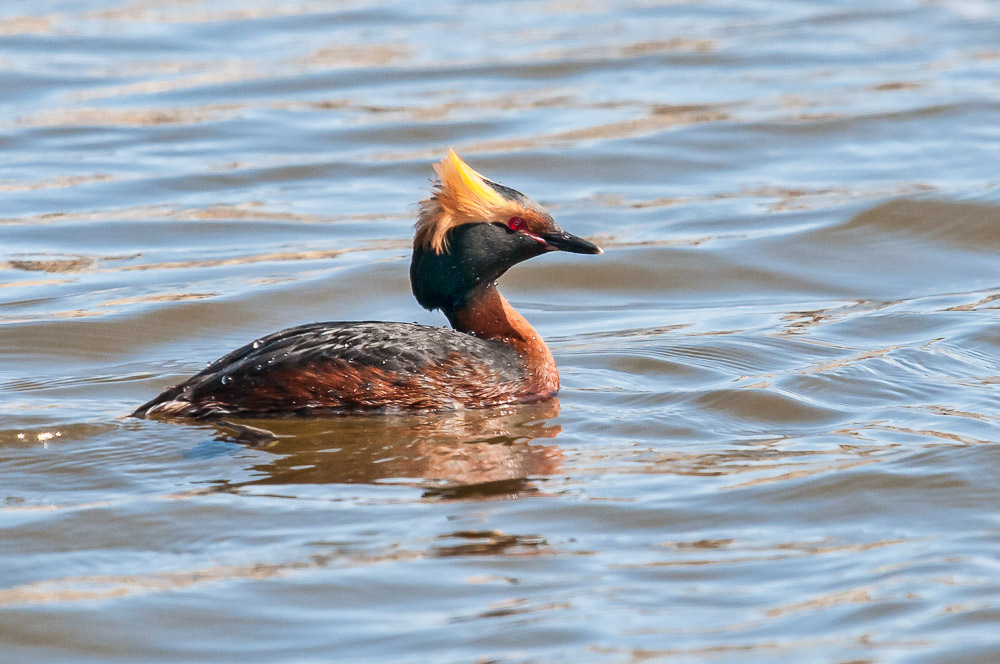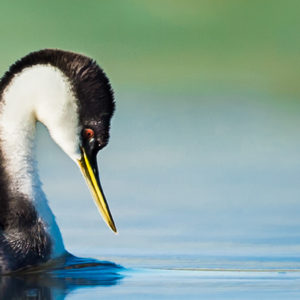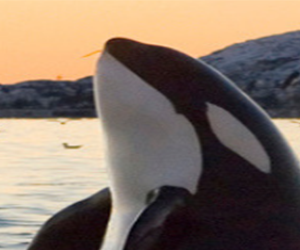NEB Plays Russian Roulette with Nature

Adam Bond, Articling Student
On May 19, the National Energy Board (NEB) issued its report on the Trans Mountain Pipeline, recommending federal approval subject to 157 conditions. The Project would increase the Trans Mountain Pipeline capacity to transport Alberta bitumen to the BC coast from 300,000 to nearly 900,000 barrels per day.
Despite unrebutted evidence that there is a 10 per cent chance of a major (8.25 million litres or more) oil spill during the 50-year lifetime of the project, the NEB concluded that the risks of spills from the pipeline, terminals and tankers are acceptable. The significant adverse impacts of Project-related increased oil tanker traffic on South Resident Killer Whales and marine birds are also acceptable according to the NEB.
Nature Canada’s view is that the NEB never built a credible scientific record on tanker oil spills and their threats to birds and marine mammals upon which to base their recommendations. Birds and the key Important Bird Areas (IBAs) such as Boundary Bay along the tanker route in the Salish Sea were largely ignored. The NEB placed “significant” weight on the purported economic benefits of the project when weighing the benefits and burdens of the application. Ultimately, the NEB took the view that the adverse environmental impacts are outweighed by the potential economic benefits of the proposed pipeline expansion.

Horned grebe photo by Chris O’Donoghue
The NEB recommended that the project be approved subject to several conditions related to endangered species and critical habitat: Trans Mountain is required to file survey and mitigation plans and reclamation and offset reports for the monitoring and reclamation of grasslands and wetlands impacted by the pipeline. The proponent must file plans for the mitigation of risks and restoration of habitat of species listed under the Species at Risk Act and provide updates on the potential impacts of the project on listed species. The proponent must implement and report on mitigation and reclamation measures to protect riparian zones, implement commitments and standards to minimize tanker traffic impacts on marine birds and Killer Whales, and file an updated Emergency Response Plan to better respond to an incident at the Westridge Marine Terminal. The NEB rejected a federal proposal for an Avian Monitoring Plan with respect to mitigation of risks to birds caused by oil tankers.
The Board dismissed motions for oral cross examination of witnesses on the basis that participants could make written requests for further information and the need to meet time limits imposed by the National Energy Board Act. While the Board recognized that the significant adverse effects of the project warranted oral hearings, they refused intervenors including Nature Canada and BC Nature the opportunity to test the proponent’s evidence on impacts on birds, marine mammals, and species at risk through oral cross examination.
Trans Mountain has spurred significant debate about the role of oil infrastructure in a Canadian economy that must get off fossil fuels by 2050 to meet Canada’s Paris commitments. But the issue that emerges is not a question of the ethics of oil; the issue is about process. Wherever one stands on the need to decarbonize the economy versus getting oil sands bitumen to market, reasonable Canadians agree that a fair process to determine the public interest including issues of sustainability is essential. Deficiencies in process (e.g., failure to allow full and rigorous oral cross-examination) create deficiencies in evidence on which the Board relies and, ultimately, on which the government makes its decision.
There are two more steps in the process before the federal Cabinet makes a decision on Trans Mountain, expected in December 2016. A three-person Ministerial Panel, including former Yukon premier Tony Pennikett, is tasked with engaging communities and consulting with local indigenous groups and reviewing input provided online on project and project-related issues. The Panel is to report in November 2016. During this period, Environment and Climate Change Canada will be examining upstream greenhouse gas emissions relating to Trans Mountain.



